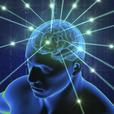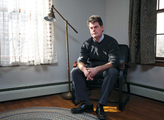
Thinking about mortality could influence the different beliefs
From saypeople.com - January 30, 2013 Researchers have found that the strength of the belief on mortality could influence the different groups of thoughts or beliefs. In this study, researchers conducted a number of experiments to check the relationship between awareness of death and belief in higher power. Think Different: The Merits of Unconscious Thought in Preference Development and Decision Making
From psycnet.apa.org - December 1, 2013 Dijksterhuis, Ap Journal of Personality and Social Psychology, Vol 87(5), Nov 2004, 586-598. The role of unconscious and conscious thought in decision making was investigated in 5 experiments. Because of the low processing capacity of consciousness, conscious thought was hypothesized to be maladaptive when making complex decisions. Conversely, unconscious thought was expected to be highly effective. In Experiments 1-3, participants were presented with a complex decision problem in which they had to choose between various alternatives, each with multiple attributes. Some participants had to make a decision immediately after being presented with the options. In the conscious thought condition, participants could think about the decision for a few minutes. In the unconscious thought condition, participants were distracted for a few minutes and then indicated their decision. Throughout the experiments, unconscious thinkers made the best decisions. Additional evidence obtained in Experiments 4 and 5 suggests that unconscious thought leads to clearer, more polarized, and more integrated representations in memory. (PsycINFO Database Record (c) 2012 APA, all rights reserved) Block, Ned. (2014). Rich conscious perception outside focal attention, Trends in Cognitive Science. 1–3
Can we consciously see more items at once than can be held in visual working memory? This question has eluded resolution because the ultimate evidence is subjects’ reports in which phenomenal consciousness is filtered through working memory. However, a new technique makes use of the fact that unattended ‘ensemble properties’ can be detected ‘for free’ without decreasing working memory capacity..
|
| ||||||||||||||||||||||||||||||||||||||||||||||
- Home
- Overview
-
Understanding Hate
- Introduction
- What is Hate? >
-
The Roots of Hate
>
- Early Imprints >
- What Are We Doing To Our Children? >
- Effects of Trauma and Abuse >
- Causes and Effects of Bullying
- Trauma, bigotry, violence linked
- Authoritarian Upbringings >
- Absolutism and Insularity >
- Papers: Early Roots of Prejudice
- Impaired Cognition >
- The Violent Brain >
- Roots of Violence and Cruelty >
- Ghosts of the Past >
-
How Hate Manifests
>
- Hate in the News >
-
Group Influence
>
- Social Defenses >
- Fanning the Flames >
-
How We Fool Ourselves
>
-
Brain and Belief
>
- Search for Certainty >
- Index: All Biases, Distortions and Influences
-
Overcoming Hate
- Overview of Topics
- Introduction
-
Prevention
>
- Education >
-
Intervention
>
- Social Support and Inclusion >
- Helping Children in Dire Conditions >
- Preventing Violence and Bullying >
- Standing Up To Prejudice, Racism, and Bigotry >
- Training Our Protectors >
- Healing the Hurt >
- Educating Our Leaders >
- Resolving Conflict >
- Israel-Palestine >
- Promoting Dignity >
- Healing the Ghosts of the Past >
- Restorative Justice >
- Confronting Mass Atrocities >
- Social Advances >
- More Solutions >
-
Resources
- Tools



